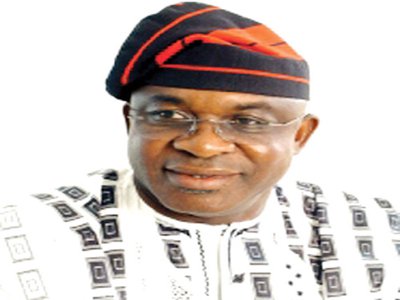In a bold move to reposition itself as a credible opposition platform, the African Democratic Congress (ADC) has approved the appointment of several prominent political figures, including former Senate President David Mark and former Osun State Governor Rauf Aregbesola, to its interim leadership.
The development forms part of the ADC’s strategy to unify Nigeria’s fragmented opposition ahead of the 2027 general elections, in a bid to challenge the ruling All Progressives Congress (APC) and the administration of President Bola Ahmed Tinubu.
Multiple sources confirmed the development to Vanguard in Abuja early Wednesday, revealing that the ADC has been adopted as the primary platform for a planned coalition of opposition forces.
These include disenchanted members of the APC, the Peoples Democratic Party (PDP), and the Labour Party, all seeking to present a united and viable alternative to the current ruling party.
The appointments to the ADC’s interim leadership were finalised on Tuesday in Abuja, the nation’s capital, following a high-level meeting of key opposition leaders.
David Mark, known for his cross-party influence and national reach, was named Interim National Chairman. Aregbesola, a former Minister of Interior and influential figure in the APC, was appointed Interim National Secretary.
Other appointments include Chief Anayo Arinze as Interim Deputy National Chairman (South), Alhaji Ibrahim Manzo as Interim Deputy National Chairman (North), and former Sports Minister Bolaji Abdullahi as Interim National Publicity Secretary.
A source familiar with the coalition’s plan stated: “This is a strategic move to unite the opposition and present a strong front against the APC. The ADC was selected due to its grassroots strength and absence of internal crises.”
The ADC’s repositioning comes at a time of mounting public dissatisfaction with the Tinubu administration, amid rising inflation, growing insecurity, and contentious economic reforms.
Why the ADC was chosen
The coalition turned to the ADC following alleged attempts by the Independent National Electoral Commission (INEC) to delay the registration of new political parties, including the proposed All Democratic Alliance (ADA).
The ADC’s existing structure, nationwide presence, and lack of factional conflict made it an ideal alternative.
Another source close to the negotiations said: “The ADC’s link to former President Olusegun Obasanjo’s reformist ideals also influenced the decision. The party is widely seen as credible and capable of driving real political change.”
Vanguard
